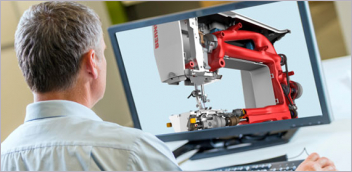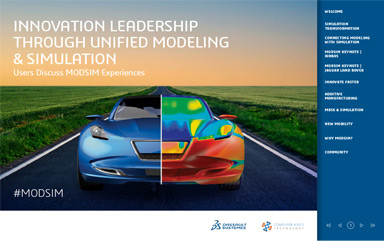CVD MesoScribe Receives ARPA-E Grant in Collaboration with Penn State University
This award will be used to develop and demonstrate the integration of printed sensors into additively manufactured gas turbine components.
Latest News
October 1, 2019
CVD Equipment Corporation's subsidiary, CVD MesoScribe Technologies Corporation, in partnership with Pennsylvania State University, has been awarded a development grant from the U.S. Department of Energy’s Advanced Research Projects Agency-Energy (ARPA-E). The total award being shared by the five development partners is approximately $4.7 million. This award will be used to develop and demonstrate the integration of printed sensors into additively manufactured gas turbine components. Currently, the challenge is how to attach sensors to complex components reliably, and survive high temperature combustion environments.
“MesoScribe’s printing technology enables new opportunities for 3D printed electronics and harsh environment sensing by printing sensors directly onto conformal surfaces that are robust, and can measure part temperature, strain, and heat flux while operating in extreme environments,” says Jeff Brogan, director of Sales & Marketing.
ARPA-E funded this program to develop the methodology to integrate sensors into additive manufactured turbine components. The project will be led by Penn State University and the Team includes CVD MesoScribe, Georgia Institute of Technology, Siemens Energy and United Technologies Research Center.
“We are excited to support this project, combining our innovative printing technology with additive manufacturing. We anticipate providing new capabilities that extend beyond diagnostic sensing whereby our technology can enable real-time performance assessment and proactive maintenance scheduling for both energy production and aircraft propulsion,” Brogan says.
Penn State University received this competitive award from ARPA-E’s OPEN+ program, a selection of mini-programs or “cohorts” inspired by the applications received for ARPA-E’s OPEN 2018 solicitation. The cohort from the Department of Mechanical Engineering seeks to develop new approaches and technologies for the design and manufacture of high temperature, high pressure and highly compact heat exchangers and components.
The capability to embed sensors within gas turbine engine components that can withstand the high temperature environment and not impact component performance, provides enabling opportunities to develop and validate new engine hardware. For additional information about this project, click here.
Sources: Press materials received from the company and additional information gleaned from the company’s website.
Subscribe to our FREE magazine, FREE email newsletters or both!
Latest News
About the Author
DE’s editors contribute news and new product announcements to Digital Engineering.
Press releases may be sent to them via DE-Editors@digitaleng.news.






